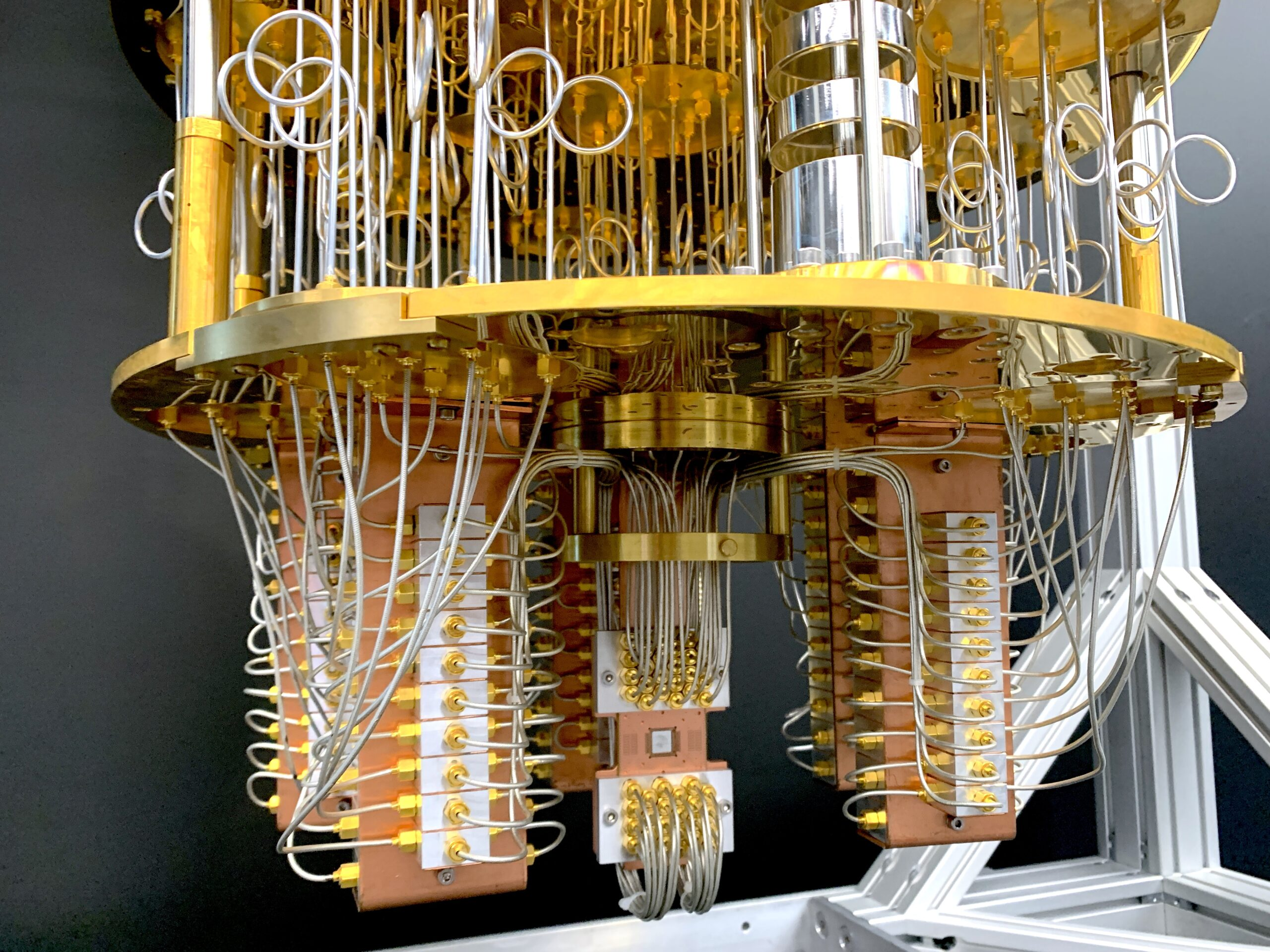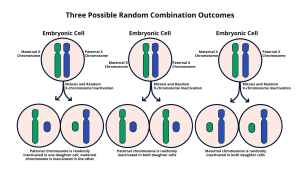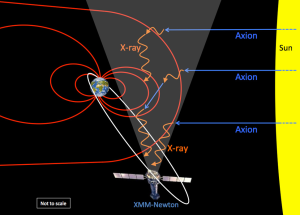Quantum Computing: Major Breakthrough Using Trapped Molecules
Quantum computing represents a groundbreaking frontier in technology, promising to revolutionize the way we process information. Recent advancements have showcased the potential of trapping molecules to perform quantum operations, marking a significant milestone in this evolving field. A team of Harvard researchers successfully achieved this feat by harnessing ultra-cold polar molecules, transforming them into qubits that can perform complex calculations at unprecedented speeds. With the ability to create quantum entanglement—the intricate link between particles that elevates computational power—new possibilities for molecular quantum computers are on the horizon. As scientists continue to explore the rich internal structures of molecules, the dream of ultra-high-speed quantum processing becomes increasingly attainable.
The exploration of advanced computational systems, often termed as quantum mechanics-based computation, unveils revolutionary possibilities in processing data. By leveraging molecular systems, researchers are unearthing innovative methods to enhance the efficiency of calculations, a significant striving in the realm of science and technology. The intricate interactions within molecules provide a rich tapestry for developing novel processing units, which can execute quantum operations with enhanced reliability. The latest achievements in trapping molecules not only demonstrate the potential for creating entangled states but also signify a leap towards the realization of sophisticated quantum devices. This compelling research underscores the journey toward revolutionizing how we understand and utilize information technology.
The Breakthrough in Molecular Quantum Computing
The recent achievement by a Harvard-led team in trapping molecules for quantum operations signifies a monumental leap in the field of quantum computing. For years, researchers have theorized the potential of molecular systems, yet their complexity and instability have hampered progress. By employing ultra-cold sodium-cesium (NaCs) molecules as qubits, the team has demonstrated that these sophisticated molecular structures can serve as reliable components in quantum circuits, that could challenge the conventional understanding of computing.
This breakthrough is not merely an academic exercise; it paves the way toward the construction of a fully functioning molecular quantum computer. Unlike traditional quantum systems that rely on simpler particles, utilizing the intricate arrangements of molecules offers new avenues for processing and encoding information without the constraints typically imposed by classical computer architecture. The prospect of harnessing molecular dynamics for advanced quantum operations could very well redefine the capabilities of computational technology.
Understanding Quantum Operations and Entanglement
At the heart of quantum computing lies the concept of quantum entanglement, an elusive phenomenon where particles become interconnected in such a way that the state of one instantaneously influences the state of another, regardless of distance. The Harvard team’s successful implementation of an iSWAP gate to entangle two molecules showcases the delicate balance required for executing such operations. This not only illustrates the viability of molecular qubits but also enhances our comprehension of quantum interactions underpinned by electric dipole-dipole relationships.
Using quantum gates like the iSWAP is a significant step toward achieving scalable quantum computation. These gates manipulate qubits to perform specific operations essential for computations, thus bridging the gap between theoretical constructs and practical implementation. The researchers’ meticulous control over molecular rotations and their precise manipulation in ultra-cold environments exemplify potential strategies to mitigate error and maintain coherence in quantum states—a critical factor for the reliability of future quantum systems.
The Role of Harvard Researchers in Advancing Quantum Technologies
The dedication and innovation displayed by the Harvard researchers—including prominent figures like Kang-Kuen Ni and Annie Park—have positioned the institution at the forefront of quantum computing advancements. Their collaborative approach, leveraging diverse expertise in chemistry and physics, has yielded a pioneering study that is expected to inspire similar investigations across the globe. By addressing the challenges of trapping molecules, the team offers a new perspective on integrating complex molecular structures into quantum systems.
This multidisciplinary effort exemplifies the importance of collaboration in scientific research, especially in fields as nuanced as quantum computing. The experience of these researchers highlights how ingenuity, when joined with rigorous experimentation, can carve pathways to breakthroughs that seem like science fiction. Their work signifies not just an academic success, but also a potential transformation in how we approach technological challenges in quantum computing and beyond.
Exploring the Future of Quantum Computing
As the field of quantum computing evolves, the implications of using trapped molecules are profound. The ability to exploit the rich internal structures of molecules can lead to the development of new algorithms and potentially revolutionary applications in industries ranging from biotechnology to cryptography. Innovations like these could enable fundamentally new approaches to solving complex problems that are currently beyond the reach of classical computers, leading to advances in artificial intelligence and machine learning.
Looking forward, the research team’s findings underscore the necessity of continued exploration and experimentation in molecular quantum systems. The excitement expressed by the researchers, particularly in leveraging the advantages of the molecular platform, suggests an open invitation for future, groundbreaking research. As they seek to further optimize their techniques and explore additional molecular candidates, the scientific community can anticipate a surge in novel quantum applications that will likely reshape computational science.
Advancements in Controlling Molecular States for Quantum Applications
One of the most significant hurdles in the path to utilizing molecular systems in quantum computing has been achieving stable control over these complex structures. The Harvard team’s utilization of optical tweezers represents a novel approach to manipulating molecules with precision, allowing them to minimize unpredictable movements that could jeopardize quantum coherence. This method not only enhances the ability to trap molecules but also opens up avenues for developing sophisticated quantum algorithms.
Through meticulous research and experimentation, the team has formulated techniques to enact controlled quantum operations that reduce errors inherent in quantum state manipulation. This breakthrough sets a precedent for future experimentation, highlighting the importance of environment and technology in the quest for quantum stability. The progression toward reliable molecular control signals a promising future for molecular quantum computing as researchers seek to leverage these techniques to enhance computational capabilities.
Quantum Computing: A Paradigm Shift Through Molecular Structures
The paradigm shift initiated by the Harvard researchers in the application of molecular systems for quantum computing is critical for several reasons. First, molecules can harbor complex information within their structures, making them potential candidates for encoding vast amounts of data in a highly efficient manner. This is a marked contrast to traditional quantum computing, which primarily utilizes simpler qubit systems like electrons or photons.
Furthermore, the use of molecular qubits introduces new possibilities for exploring quantum mechanics and its applications. By harnessing the unique properties of molecules—including their intrinsic entangled states—researchers can potentially unlock new realms of quantum computation that leverage the principles of quantum mechanics more effectively than ever before. The implications for future research and development are vast, suggesting a rapidly evolving field that continuously challenges our understanding of technology.
Experimental Challenges and Solutions in Quantum Computing
While the Harvard team’s success marks a crucial milestone, the journey to fully functional molecular quantum computers is fraught with challenges. The stability of molecular qubits under various experimental conditions poses significant risks to maintaining quantum coherence. As identified in their paper, unintentional motion of molecules can lead to errors, necessitating rigorous error correction strategies and an in-depth understanding of quantum dynamics.
To address these challenges, researchers are focused on refining their methods for trapping and manipulating molecules, exploring new techniques to increase the accuracy and reliability of molecular quantum systems. As the field progresses, identifying effective measures to curb errors and enhance operational efficiency will be integral to the success of trapped molecular qubit systems. Continued investment in research will be essential to surmount these hurdles and unlock the full potential of molecular quantum computing.
The Implications of Quantum Entanglement in Computing
Quantum entanglement serves as a fundamental concept in quantum computing, enhancing the capabilities of computation far beyond what classical computers can achieve. The Harvard researchers’ achievement in generating a highly accurate two-qubit Bell state establishes a foundational understanding of how entangled states can be formed for complex quantum operations. This understanding is crucial for future advancements in scalable quantum architectures.
Moreover, the manipulation of entangled states in molecular quantum computers could lead to breakthroughs in secure communications and quantum cryptography. As researchers continue to explore the implications of entanglement, the potential for developing new cryptographic protocols that leverage quantum properties could reshape digital security measures significantly. The insights gained from the Harvard study may very well be instrumental in shaping future quantum technologies.
Collaborative Research: Bridging Gaps in Quantum Physics
The collaborative nature of the Harvard research team underscores the importance of interdisciplinary efforts in tackling complex scientific problems. The involvement of physicists and chemists not only enriches the exploration of molecular quantum computing but also enhances the quality of the research through diverse perspectives and methodologies. Such collaboration is often key to overcoming the technical challenges in a field as intricate as quantum physics.
Furthermore, sharing knowledge among researchers from different disciplines fosters innovation and promotes the development of novel techniques that can accelerate advancements in quantum computing. As institutions across the globe invest in interdisciplinary research initiatives, we can expect rapid advancements in our understanding of quantum systems and their applications. This collaborative approach is essential for pushing the boundaries of what is currently known in quantum technology.
The Future of Computing: Harnessing Molecular Complexity
The implications of successfully employing molecules in quantum operations extend beyond mere computation speeds; they usher in a new era of technological advancements. By harnessing the complexities within molecular structures, future quantum computers could process data in ways that have previously been thought impossible, leveraging phenomena such as superposition and entanglement to revolutionize industries from finance to pharmaceuticals.
With ongoing research focusing on maximizing the benefits derived from molecular quantum computers, we can anticipate not only advancements in computational power but also innovations in problem-solving that could tackle some of the most pressing issues of our time. The exciting prospects of molecular quantum computing illustrate a future where quantum technologies have a profound impact on society, shaping everything from technological infrastructure to everyday devices.
Frequently Asked Questions
What is a molecular quantum computer and how does it differ from traditional quantum computers?
A molecular quantum computer utilizes molecules, specifically employing their rich internal structures as qubits, which allows for more complex quantum operations. Unlike traditional quantum computers that mainly use trapped ions or superconducting circuits, molecular quantum computers harness the intricate properties of molecules, which can lead to faster and more powerful computations.
How do researchers trap molecules for quantum operations in molecular quantum computing?
Researchers at Harvard successfully trapped sodium-cesium (NaCs) molecules using optical tweezers in ultra-cold environments. This method minimizes molecular motion, allowing precise control over their quantum states for performing quantum operations.
What role does quantum entanglement play in quantum computing?
Quantum entanglement is a fundamental aspect of quantum computing, enabling qubits to become correlated regardless of distance. This property is crucial for performing complex computations and creating entangled states, which enhance the processing power of quantum computers.
What significant advancement was made by Harvard researchers in quantum computing?
Harvard researchers, led by Kang-Kuen Ni, achieved the first successful trapping of molecules to perform quantum operations. This breakthrough is a vital step in constructing a molecular quantum computer, marking a milestone in trapped molecule technology.
Why are molecules considered beneficial for ultra-high-speed quantum computing technologies?
Molecules possess a rich internal structure that can lead to advanced quantum operations, potentially enabling ultra-high-speed technologies. This complexity, when properly controlled through techniques like trapping, may result in faster computational processes compared to current quantum systems.
What challenges have been faced in utilizing molecules for quantum operations prior to this research?
Historically, the unpredictable movements of molecules made them unsuitable for reliable quantum operations. Their instability interfered with coherence, a delicate quantum state necessary for effective computation, until methods like trapping in ultra-cold environments were developed.
What are quantum operations and how are they performed in the context of molecular quantum computing?
Quantum operations are the processes that manipulate qubits to perform calculations in quantum computing. In molecular quantum computing, these operations are carried out by controlling the interactions and states of trapped molecules, such as executing an iSWAP gate that creates quantum entanglement.
What advances does the future hold for molecular quantum computing according to researchers?
Researchers express optimism about the future of molecular quantum computing, envisioning innovations that leverage the unique properties of molecules. This could lead to substantial advancements in quantum technologies, benefiting various fields such as medicine, finance, and materials science.
| Key Aspect | Details |
|---|---|
| Research Team | Led by Kang-Kuen Ni, including co-authors Annie Park, Gabriel Patenotte, and Samuel Gebretsadkan. |
| Breakthrough | First successful trapping of molecules for quantum computations using ultra-cold polar molecules as qubits. |
| Published Research | Findings published in *Nature*, highlighting the potential of molecular structures in quantum technology. |
| Key Technology | Utilization of the iSWAP gate to create entangled states, a fundamental aspect of quantum computing. |
| Applications | Potential for advancements in fields such as medicine, finance, and scientific research through enhanced computational capabilities. |
| Future Directions | Encouragement for innovations and ideas leveraging the unique properties of molecular systems for quantum technology. |
Summary
Quantum computing has reached a significant milestone with the successful trapping of molecules to perform quantum operations for the first time. This groundbreaking research led by Harvard scientists opens up new possibilities for utilizing the complex internal structures of molecules in advanced quantum systems. As the team demonstrates, harnessing these molecular systems not only enhances the speed and efficiency of quantum computations but also paves the way for future innovations in a wide array of applications spanning various scientific and technological fields.



